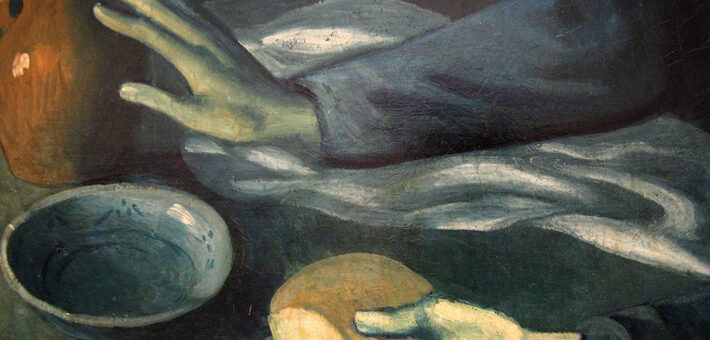Commentary on Hosea 1:2-10
As the reader of the book of Hosea moves from interpreting to preaching, unresolved and highly debated issues are wisely set aside.
At the very least, the proclamation should not be dependent on what side one takes in debated interpretative issues.
For example, many interpreters have debated the relationship of the command to marry in Hosea 1:2 (“a wife of whoredom”) and in Hosea 3:1 (“a woman who has a lover and is an adulteress”). Are these different marriages? If they refer to the same marriage, what purpose does the repetition serve? Are they both figurative speech-acts with no assumed reality in the biography of Hosea? The task before the preacher does not encompass writing a biography of Hosea. After all, nothing in the text suggests that the reader should emulate Hosea; there is no exhortation to be like Hosea. Similarly, reconstructing the compositional history of the first three chapters remains an issue of contention; theological tensions are not thereby resolved.
Even more conflicted and contentious are the gender roles within the text. The difficulty is acute when we move from the relationship between Gomer and Hosea to the language that portrays God as a punishing husband and Israel as a wife with multiple lovers (Hosea 2:5, 13). Some readers sense a deep resonance between the patterns of speech in spousal abuse — the movement from offended, punishing and shaming husband (e.g., Hosea 2:10) to the alluring words seeking to restore the relationship (Hosea 2:14-15). As with the statements of Jesus on divorce (Matthew 19:3ff.), the preacher should allow no one to use the text to underwrite self-serving authority over others. Such texts generate overtones that drown out any other hearing. Acknowledge it and don’t scold it away.
The core abrasiveness of the text and deepest violation of our religious sensibilities resides in the names of the children of Hosea and Gomer. Jezreel: The strength (“the bow”) of Israel will be broken. That is a different script for the future from the one Hosea’s contemporaries envisioned for themselves. Lo-ruhamah: Israel will no longer be pitied or forgiven by God. Lo-ammi: Israel will no longer be God’s people and God will no longer be their God. The prophetic message is a three-fold disruption of the relationship that was presumed to exist heretofore. Disruption is perhaps too slight a term; this is not a speed-bump in a continuing relationship. It is the severance of the relationship. It is discontinuity, not merely disruption even though the latter may itself be very abrasive and painful.
In the naming of the three children the text moves beyond concern for the biography of the relationship of individuals named Hosea and Gomer, whether figurative or real persons. The text is concerned foremost with Israel as a people. The text speaks in profoundly communal terms. It will have no future. It’s strength (bow) is broken. There is no more mercy; no forgiveness. The relationship captured in the pronouns “my” and “your” ends; Israel is not the people of God. The value of determining the exact nature of the relationship between Gomer and Hosea dissipates as the reader faces the announcement of the closed future embedded in the names of the three children.
What is so wrong with Israel, the community of God, that the prophetic word announces such a sharp negation of the relationship with God? At this point one has to go beyond the few verses in the appointed reading simply to see that “the land commits great whoredom by forsaking the Lord” (Hosea 1:2). What constitutes “forsaking the Lord”? One answer is idolatry, but that can, standing by itself, invoke the image of a jealous husband or a sovereign that insatiably demands signs of fidelity. But the communal emphasis in Hosea precludes shrinking in the prohibitions against idolatry into a fussy divine command. We need only turn to chapter 4 to see that loyalty and faithfulness toward God and the knowledge of God are not only about the individual and God. When that allegiance to God is absent, the void is filled with swearing, lying, murder, stealing, adultery, and bloodshed (Hosea 4:1-2). And beyond human victims, the land mourns and animals, birds and fish languish and perish (Hosea 4:3 — Doesn’t that sound a bit like climate change?). Yet one more instance: Israel has become a trader who loves to oppress by using false weights (Hosea 12:7-8 — Would it be a stretch to think of falsely rated bonds and securities?). Unfaithfulness to God is not a victimless sin in the Bible.
The finality invoked in the names of the three children is matched by the near absence of calls for repentance in the rest of the book (Hosea 12:6 is a rare exception). Announcements of judgment which lack contingency predominate in Hosea. There are references to God’s past desire for a different outcome. Prophets were sent to hewn the people (Hosea 6:5); God as a father taught Ephraim to walk (Hosea 11:3), but they persisted in refusing the relationship, a trait that is even traced all the way back to Jacob (Hosea 12:3-4). This rips at God’s heart (Hosea 11:8), but God’s pledge to not come in wrath (Hosea 11:9) becomes a source of hope in the midst of God’s roaring like a lion (Hosea 11:10; 13:7-8). There is no second chance dangled in front Hosea’s audience; Israel has no means to forestall the discontinuity announced in the naming of Hosea’s children.
Two verses in the appointed reading counter the discontinuity underscored above. Verse 7 declares that God will have pity immediately after stating in verse 6 that God would no longer have pity or forgive. The fact that the pity is promised to Judah, not Israel, might soften the tension between the two verses. Whether Hosea offered a sidebar comment about Judah or a later editor added the comment as the book was brought to the Judah after the fall of Samaria depends on how one views the book’s compositional history. In either case, we know from the rest of Scripture that Judah later depended on bow, sword, war, horses, and horsemen as much as Israel. Judah was spared from Assyrian but not the later Babylonian destruction.
But we cannot sidestep the tension verse 10 creates with the names of the three children. As with the names, there is discontinuity in the declaration. “Not-my-people” becomes “my-people” — “children of the living God.” These good words, these gospel words, are sharply disjunctive. They undo the condemnation. Only God can undo God’s own “NOT” — the not-pitied, the not-my-people. We ought not rush to verse 10. Too quickly blunting the three names with verse 10 can lead to ignoring the victims of our rebellion (see again, Hosea 4:2-3). There is no mention of Israel changing or repenting. Verse 10 is not a reward for repenting, sincerely or otherwise (c.f., Hosea 6:1-4). The movement from the three names to the promise of verse 10 is a change in God. The three names are a “Good Friday.” There is death in Israel. Verse 10 is an “Easter.” There is a promised re-creation.


July 24, 2016